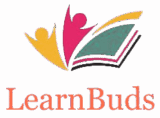Speak Clearly. Understand Better. Practice Every Day.
🧩 Overview:
The Vocabulary Builder for Daily Use is a themed collection of the most commonly used words and expressions in real-life situations. Words are grouped by daily topics, each with:
-
✔ Meaning in simple English
-
✔ Example sentences
-
✔ Common phrases or collocations
-
✔ Optional translations (e.g., Hindi/other native languages)
🗓️ How to Use:
-
Learn 10–15 new words daily
-
Read aloud each word and sentence
-
Practice using the words in conversations or writing
-
Review weekly with simple tests or quizzes
📦 Vocabulary Topics (Modules)
✅ 1. Morning Routine Words
-
wake up
-
brush teeth
-
take a shower
-
get dressed
-
comb hair
-
have breakfast
-
pack bag
-
catch the bus
-
leave the house
-
go to school/work
🔹 Example:
“I wake up at 6:30 every morning.”
“She takes a shower before breakfast.”
✅ 2. At the Market / Grocery Shopping
-
vegetables
-
fruits
-
price
-
buy
-
sell
-
change (money)
-
cheap
-
expensive
-
bag
-
receipt
🔹 Example:
“How much do these bananas cost?”
“This shirt is too expensive.”
✅ 3. Food and Drink Vocabulary
-
breakfast / lunch / dinner
-
rice
-
bread
-
tea / coffee
-
water
-
juice
-
milk
-
vegetables
-
spicy / sweet / sour
🔹 Example:
“I drink coffee in the morning.”
“My favorite food is spicy rice.”
✅ 4. Family and Relationships
-
mother / mom
-
father / dad
-
brother
-
sister
-
uncle / aunt
-
cousin
-
friend
-
neighbor
-
husband / wife
-
children / kids
🔹 Example:
“My mother cooks very well.”
“He is my neighbor.”
✅ 5. Feelings and Emotions
-
happy
-
sad
-
tired
-
excited
-
angry
-
nervous
-
relaxed
-
sick
-
bored
-
scared
🔹 Example:
“I feel tired today.”
“She looks excited about the party.”
✅ 6. Common Verbs in Daily Life
-
go
-
come
-
do
-
eat
-
drink
-
sleep
-
say
-
help
-
call
-
use
🔹 Example:
“I go to school at 9 o’clock.”
“Can you help me, please?”
✅ 7. Talking About the Weather
-
sunny
-
rainy
-
cold
-
hot
-
windy
-
cloudy
-
stormy
-
foggy
-
temperature
-
season
🔹 Example:
“It’s very hot today.”
“Do you like rainy weather?”
✅ 8. In the Classroom
-
teacher
-
student
-
book
-
pen / pencil
-
notebook
-
homework
-
lesson
-
read
-
write
-
answer
🔹 Example:
“The teacher is writing on the board.”
“Please answer the question.”
✅ 9. At Work / Office Words
-
boss
-
colleague
-
meeting
-
computer
-
file
-
document
-
print
-
break time
-
email
-
project
🔹 Example:
“I have a meeting at 11 a.m.”
“She sent an email to her manager.”
✅ 10. Travel and Transport
-
bus
-
train
-
taxi
-
station
-
ticket
-
driver
-
road
-
traffic
-
reach
-
late
🔹 Example:
“I go to school by bus.”
“There is a lot of traffic today.”
🗣️ Bonus: Everyday Phrases
-
“How are you?”
-
“What’s your name?”
-
“I don’t understand.”
-
“Can you help me, please?”
-
“See you later!”
-
“Excuse me.”
-
“I’m sorry.”
-
“It’s okay.”
-
“Thank you very much.”
-
“You’re welcome.”
📊 Review Tools:
-
✅ Weekly vocabulary quizzes
-
✅ Flashcards (digital or printable)
-
✅ Vocabulary bingo
-
✅ Word-matching games
-
✅ Simple writing tasks using new words
🎓 Outcome:
By completing the Vocabulary Builder, learners will:
-
Gain confidence using everyday English
-
Understand common words used in conversations
-
Improve pronunciation and word recall
-
Speak more fluently in daily situations
Would you like:
-
A printable version with visuals for each topic?
-
A quiz for each word list?
-
Audio recordings for pronunciation practice?
Let me know how you want to develop this into a full learner-friendly product!


